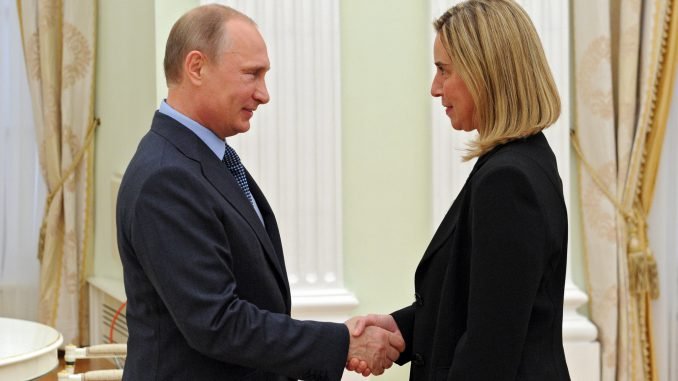
Let’s start with Lithuania and its alleged integrity when it comes to foreign policy. I agree with Mr Laučius that, in the face of the Ukrainian conflict, Lithuania took a very firm and clear position, strongly condemning Russia‘s aggression and siding with Ukraine.
What cannot escape one’s attention is the fact that, in this instance, Lithuania’s geopolitical-existential interests are in perfect sync with its declared value principles, i.e., it is in our interest to take the position that we have taken not just to adhere to those principles, but also out of pure self-interest, in order to advance our national security. And since national security always takes precedence over economy in a country’s list of priorities (a state first needs to exist in order to take care of its economic well-being), one should not be too surprised that we are willing to suffer negative economic consequences arising from the Ukraine-Russia conflict. The question here is why the Western countries are more moderate in their positions vis-à-vis Russia?
Before tackling this question, let’s look at instances where Lithuania’s geopolitical interests do clash with its declared principles in order to assess more accurately the actual weight of integrity in Lithuania’s foreign policies.
Take, for instance, the policy of the United States, our strategic partner, in the Middle East. Have you ever heard the Lithuanian Ministry of Foreign Affairs expressing concern over George W. Bush’s reckless invasion of Iraq? Did Lithuania condemn torture in Abu Graib prison? What about Washington’s friendship with authoritarian regimes like Saudi Arabia or Mubarak’s Egypt? I have failed to find any official declarations issued by the Foreign Ministry on these issues. Why did we not criticize the US government for using double standards? Could it have been because our foreign policy interests, as well as those of many other countries, trumped our principles?
Let’s return to Ukraine. Accusations levied against Western European states of allegedly failing to grasp the situation there are, to be sure, rather ridiculous. They understand everything very well and are not convinced by the “truth” spread by Russian propaganda. What’s at issue here is not naivete, relativism or mix-up of fact and propaganda – it’s national priorities and level-headed self-interest. Many Western leaders are reluctant to engage too much in confrontation with Russia, because it will negatively affect their countries’ economic interests and, in the end, their own political careers.
Western politicians are not ready to give up their national strategic interests for the sake of Ukraine, because the conflict poses no direct geopolitical-existential threat to them. Unlike in Lithuania, where it’s the latter that is at stake, in the West economic considerations take precedence. And it is the factor that explains the caution in response to Russia’s actions. If France thought that Russia was threatening its own security, not just Ukraine’s, Paris would react in the same way that Vilnius now does.
The only ones who might buy the myths about allegedly growing laxity and loss of integrity in the West are those who spread them. The history of the Western civilization is covered with dead bodies of principles sacrificed for pragmatic interests. One can recall the three partitions of the Polish-Lithuanian Commonwealth or the Berlin Conference, the Munich Agreement – all the instances where the great powers exhibited open cynicism and paternalism. Today, the only government exhibiting such insolence is that of Russia.
To conclude with, let’s look at how Lithuanian politicians handle dilemmas between economy and principles in the absence of any geopolitical-existential threats. An example that comes to mind is not a perfect one, but quite topical. In late September, the Lithuanian parliament rushed to vote on whether to allow ritual slaughter of livestock without stunning the animals first. Ritual slaughter used to be banned in Lithuania, but this value principle fell very easily when it clashed with economic interests of meat exporters. Clearly, our own integrity also has its limits and we can be quite flexible.

Be the first to comment